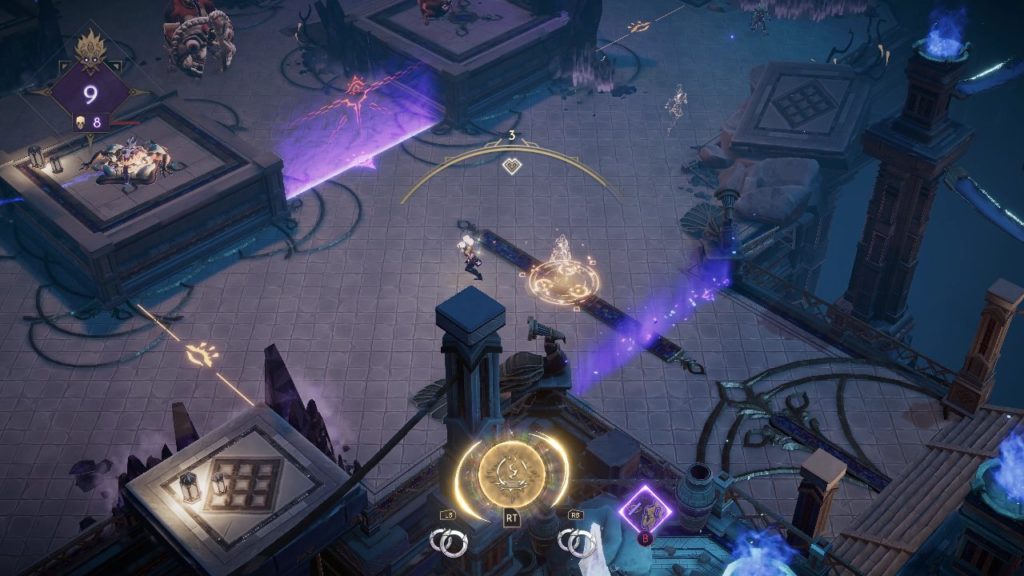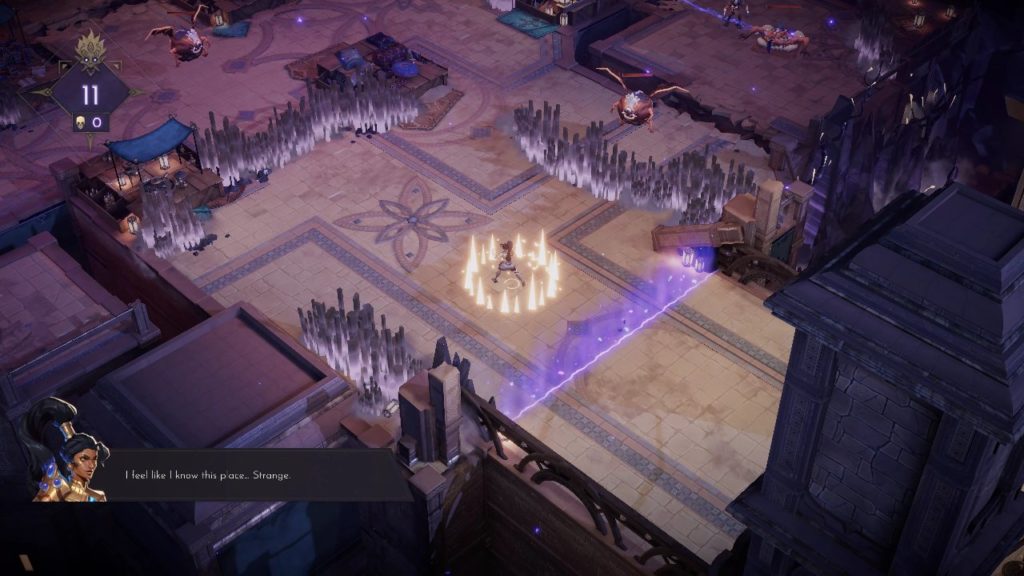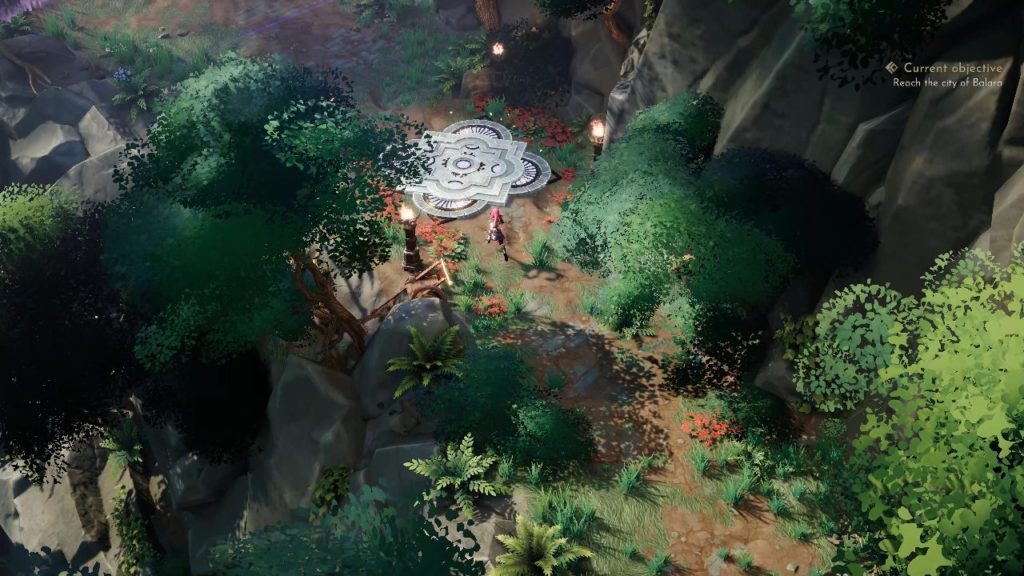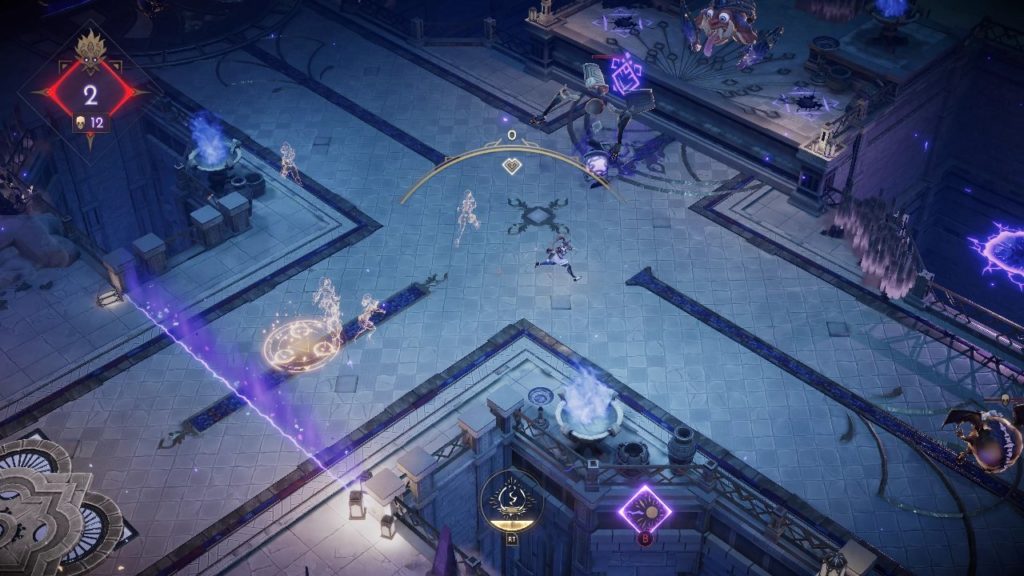Lysfanga: The Time Shift Warrior review
It’s often said that there is nothing new under the sun. There are no truly new ideas, just new ways of doing old ones. We’ve found all the colours, all the musical notes, all the ways there are to cook bacon and eggs. We might combine them in weird and maverick ways from time to time, but that’s not true innovation – and there’s always a danger of ending up with a bacon and egg trifle, and nobody wants to see that. The same can be said for games, too. There are no truly unique games, but there are games that incorporate unique or new ideas into an existing, familiar framework. This is true of Lysfanga: The Time Shift Warrior.
The framework of Lysfanga is nothing new, for example. The story themes, setting, character writing, exploration, even progression, are all super familiar. But the core of the game, the combat at its very heart, feels very fresh. At least, until it doesn’t, but that takes some time.

Lysfanga is set in Antala, a world reminiscent of ancient Persia, and in fact contains elements that wouldn’t feel out of place in Ubisoft’s chronicles of Persia and the various Princes thereof. The backstory is also pretty forgettable. There was an ancient evil vanquished by Qhomera, the Goddess of Time, who then sealed it away and appointed a warrior called a Lysfanga to watch over her nation. When one Lysfanga dies, the powers pass down to the next. In the case of protagonist Imë and her brother Kehor, the power passed to twins. But while Imë followed the ways of the Lysfanga, Kehor buggered off in pursuit of knowledge and power with the implied promise not to turn evil, honest.
As the game starts, the evil has returned after 500 years, and Imë is called to the temple of Qhomera to investigate. She finds the sealed realm of the Raxes reopened, and the temple and its environs heaving with deadly enemies. Initially armed with only her scimitar and targe, Imë ventures in with the kind of overconfident sass we’ve come to expect of video game protagonists. After a quick dressing down, she’s visited by Qhomera herself and given access to the Goddess’ powers.

This being a game the Goddess decides to drip feed said powers instead of just giving them all at once, or giving them to an army, or coming down in person, so you’ll initially begin with just one ability. Though, that one ability is a bit of a doozy.
Imë is able to rewind time when she dies or at will within a limited time frame. When she does, she leaves behind a ghost of herself called a Remnant. With a limited number of Remnants, and a tight time frame with which to act, each combat encounter becomes a straight-up puzzle as you play cooperatively with former versions of yourself.
For example, there are some enemies that are linked, and will come back to life unless you kill both at the same time. Later there are coloured doors, and passing through a purple one causes the golden ones to lock (and vice versa). There are enemies who can only be attacked from behind, so you’ll need a Remnant to keep their attention. It starts of simply enough, but by the second act Lysfanga: The Time Shift Warrior is throwing so much at you that just remembering what each Remnant must do is taxing.

Enemies slain by a remnant won’t see or react to your next incarnation, and to advance through an area you’ll need to clear out all the enemies without running out of Remnants. It’s a hugely satisfying combat loop, especially when you unlock alternate weapons like the twin Chakram. Lysfanga also has multiple spells granted by Qhomera, such as a stun attack, or the ability to pull enemies to her – but you can only equip one at a time. Thankfully you can change a spell before initiating combat to adapt your tactics if necessary. And finally, there are buffs you can equip (again, you only have one slot), and a massive area-of-effect attack to damage multiple enemies at once.
New enemies and mechanics are introduced steadily but often, and then casually thrown together, creating some truly fiendish fights. Boss encounters are few and far between, but do a good job of forcing you to use what you’ve learned and think tactically. When not in combat you can explore, looking for Motes of Time with which to upgrade gear and forge new skins, glowing Shards that will grant more Remnants, and coloured skins for Imë’s armour and hair.

Throughout Lysfanga you’ll also encounter golems that you befriend and send back to your hub camp. Each offers a service, such as fast travel teleporters, a training area, the ability to hang paintings (seriously), and a forge of sorts. The further you move beyond the camp, the more things you’ll find to help you advance.
Perhaps the biggest flaw in Lysfanga: The Time Shift Warrior is that as varied as the individual combat encounters are, it never really changes it up. It adds more mechanics, and you’re never sure what you’re going to be facing until combat begins, but the repeated routine of exploration and fixed combat encounters does eventually start to lose its appeal. After a while I just didn’t feel like it was surprising me any more and some of the combat requires so many Remnant phases that it becomes a bit of a chore. It’s not a hugely long game, but it does lose its lustre slightly by the final third.
And yet that may not be a problem for some. Its unique core mechanic is fun and satisfying, and at least the slightly generic story adds context to Imë’s abilities. Thought and effort has gone into making the powers fit the world, and Ime is a likeable enough protagonist to spend a dozen hours with. Perfectionists will also find a lot to like as you can replay almost all the combat encounters to chisel milliseconds off your completion time.
Hitting the market so close to Prince of Persia: The Lost Crown is a good move for Lysfanga, too, as it can’t help but evoke a similar atmosphere to that series in Imë’s lightning fast strikes, the time manipulation mechanics, and the world in which it all takes place. But Lysfanga: The Time Shift Warrior manages to be its own entity at all times, and delivers a fun, creative action-adventure with enough charm and new ideas to stand out.





